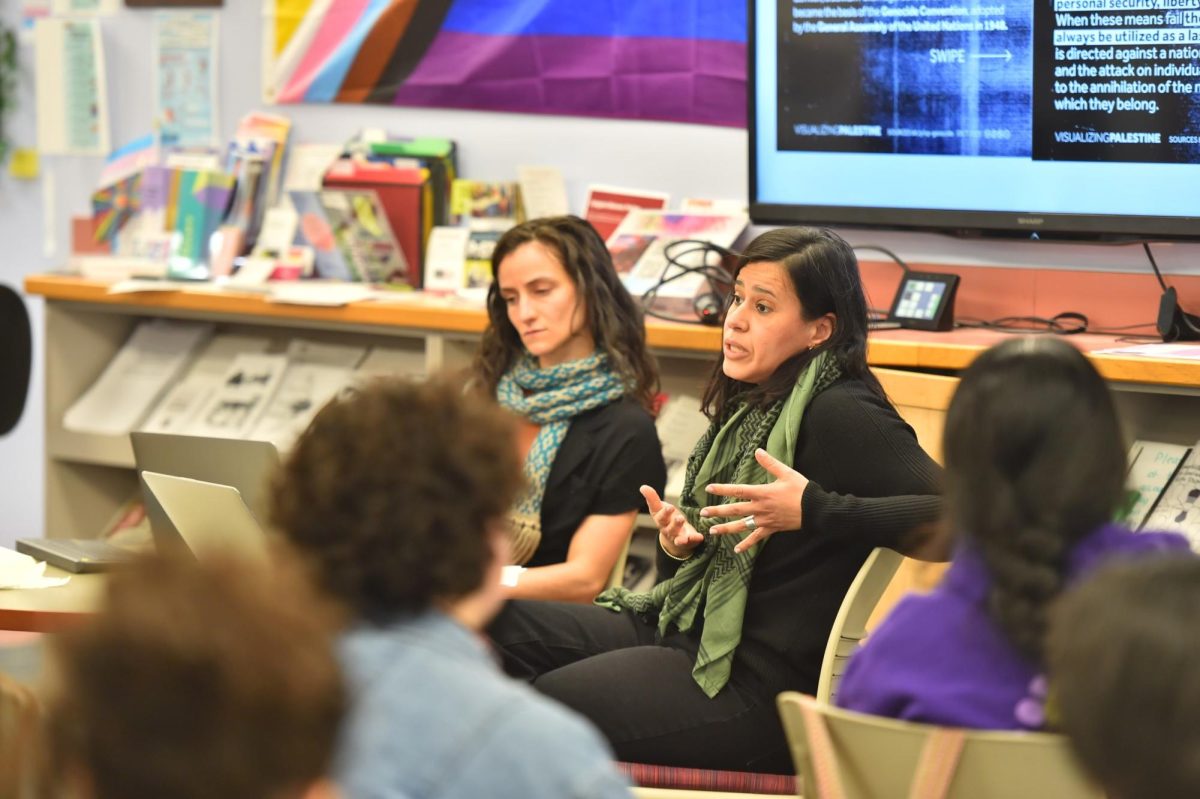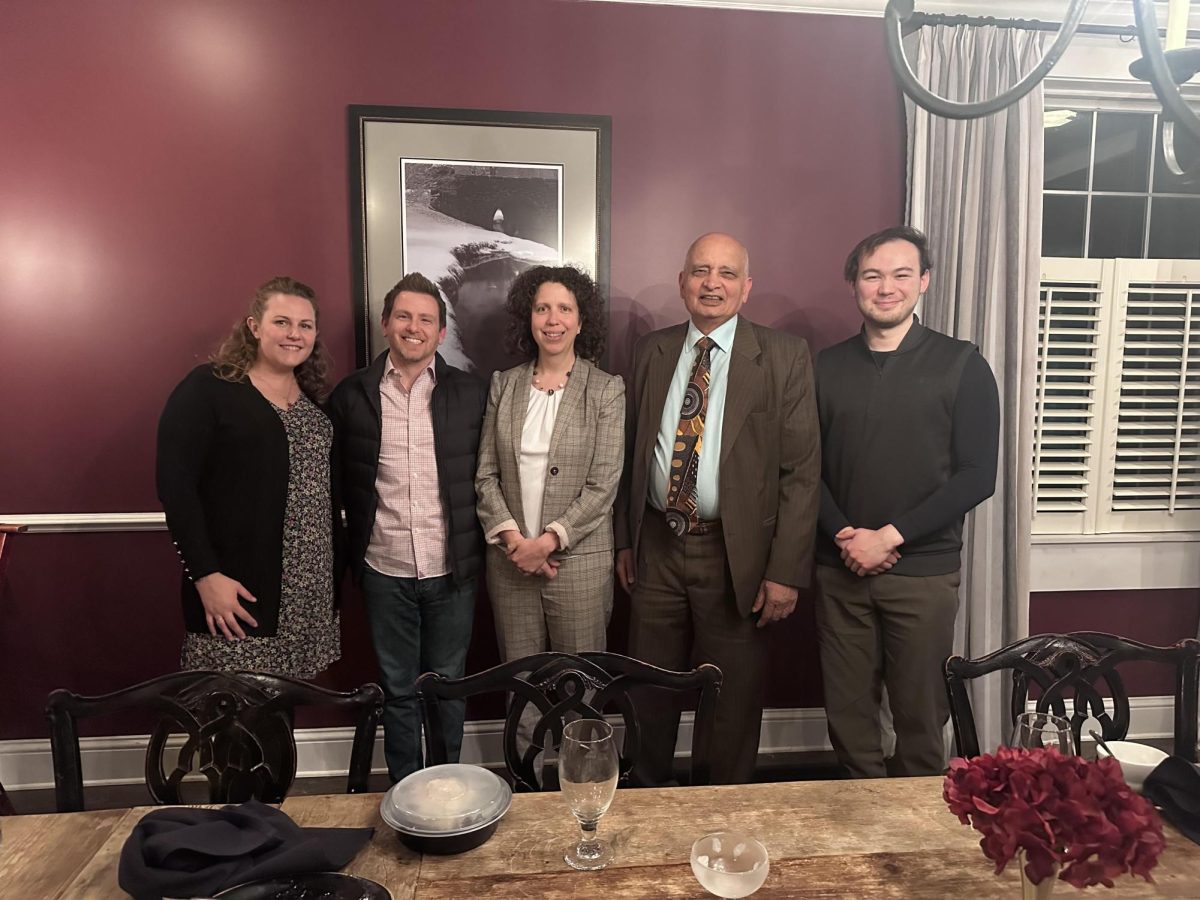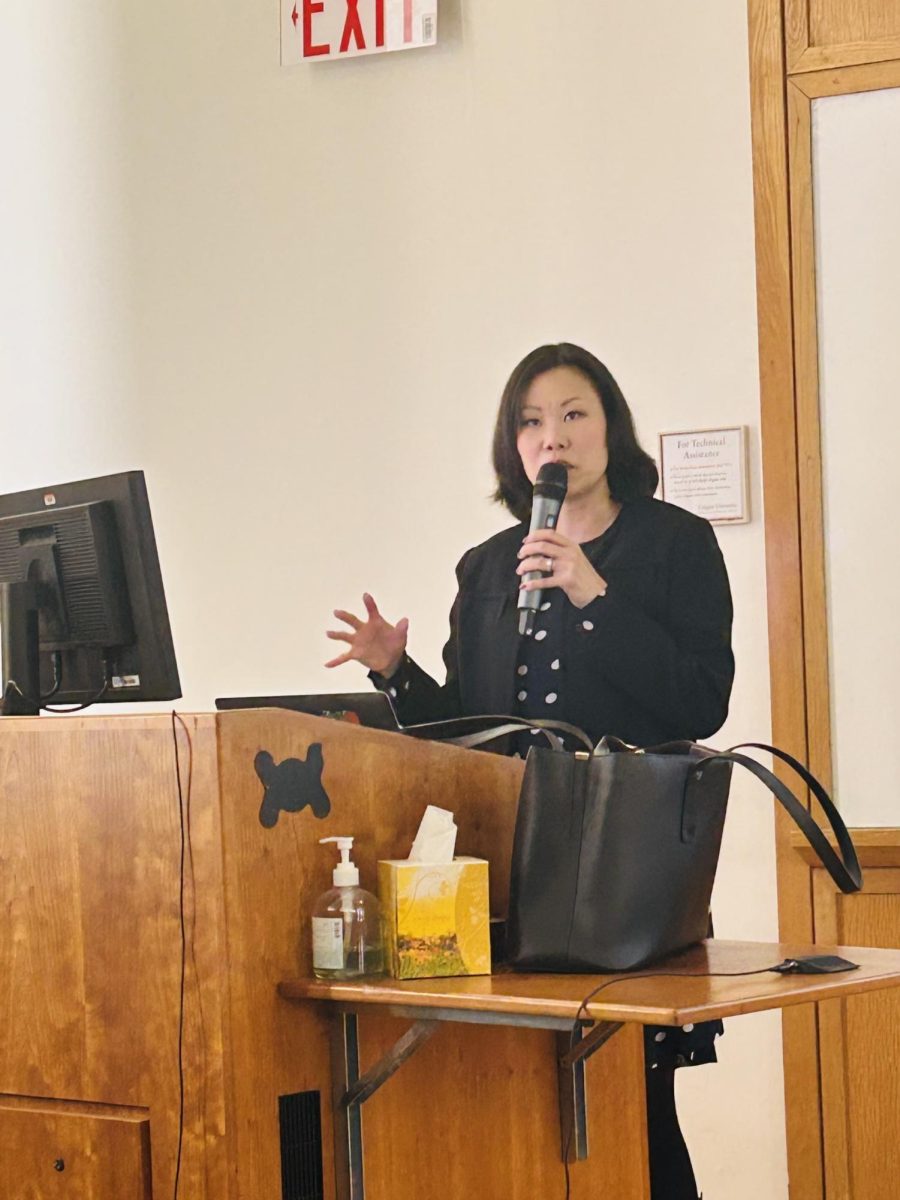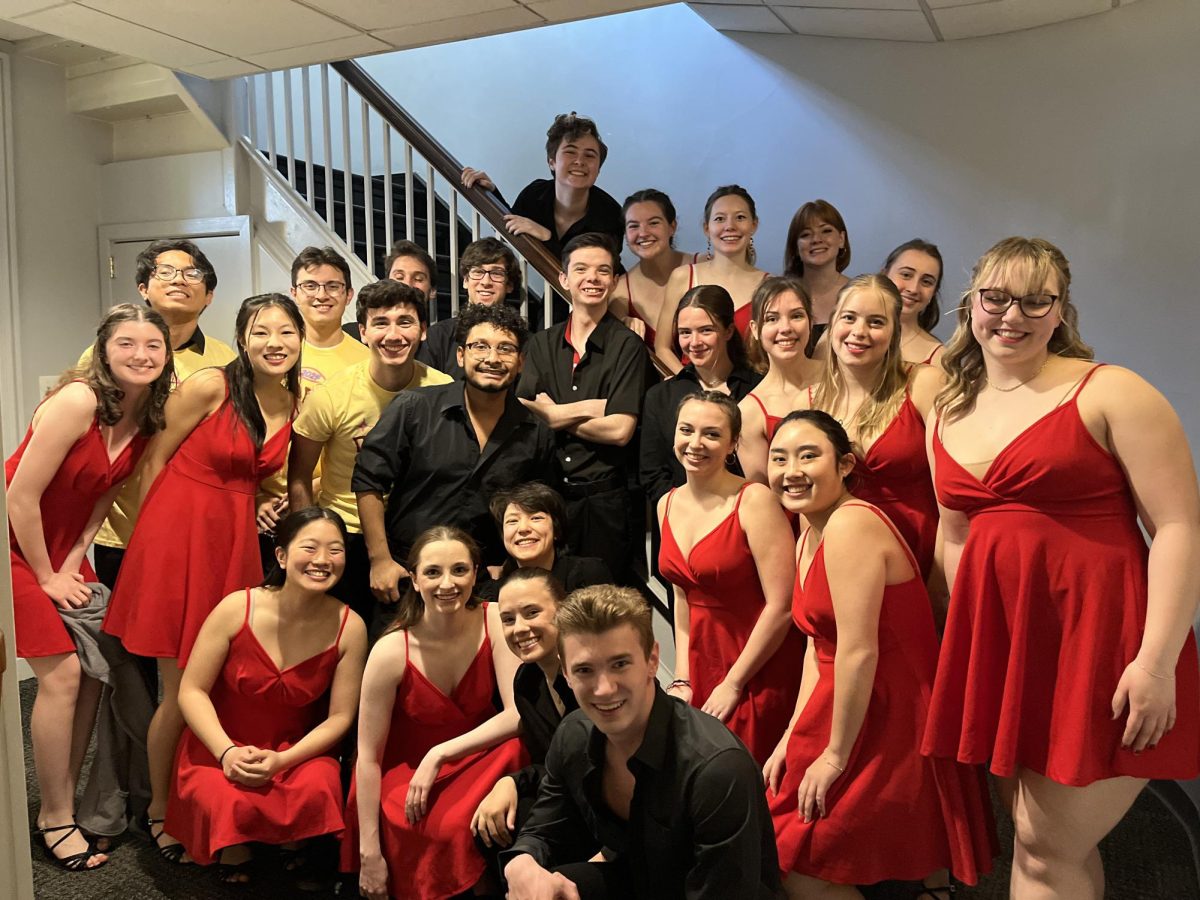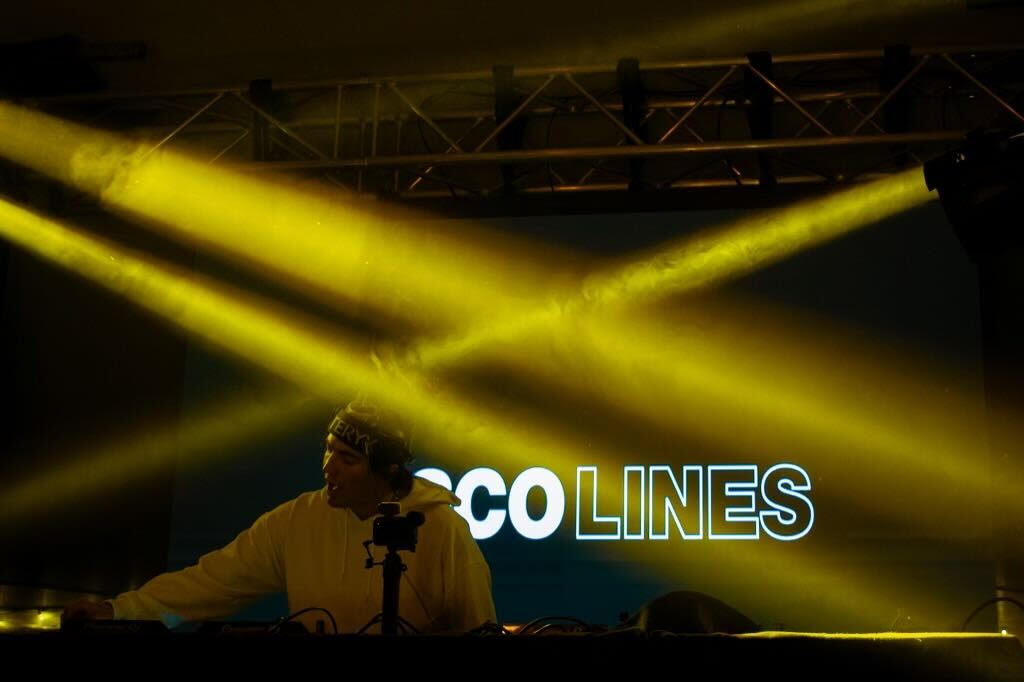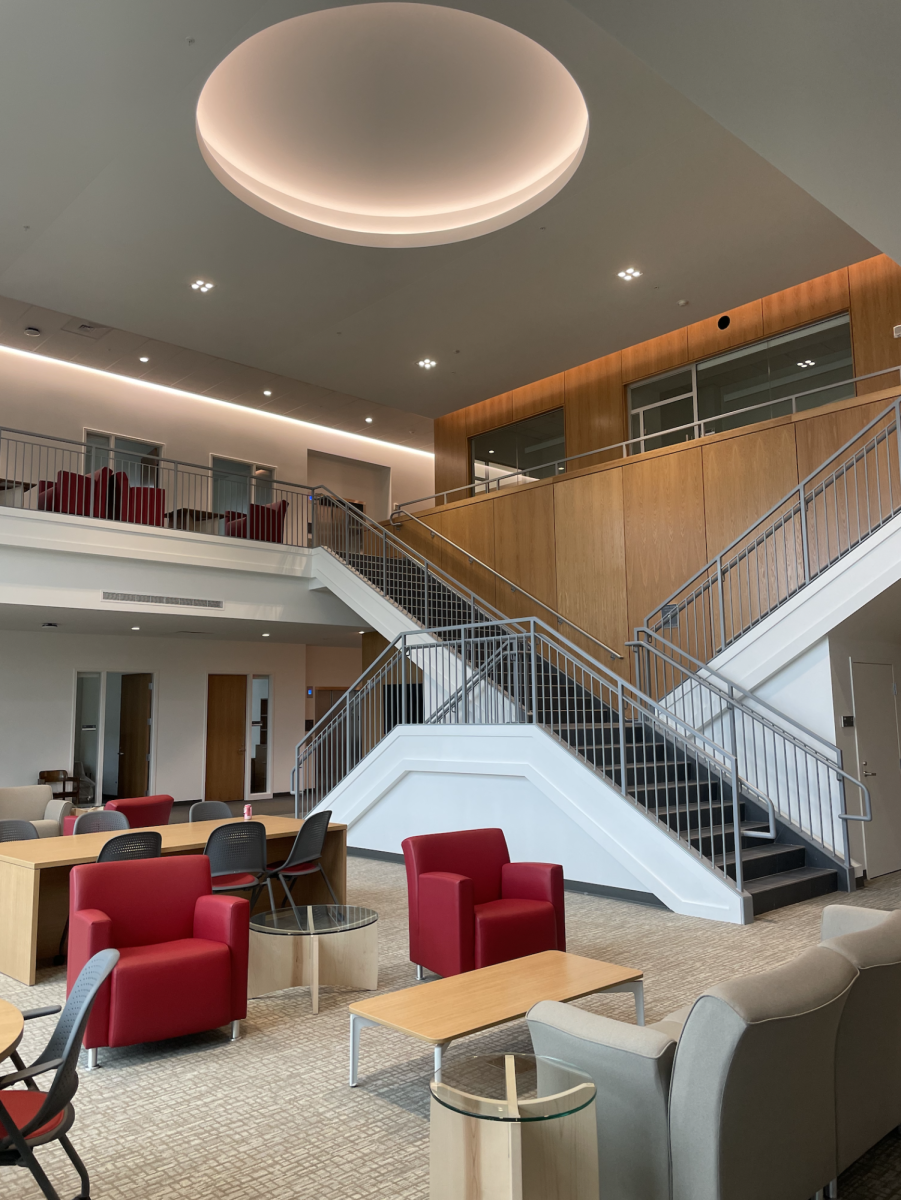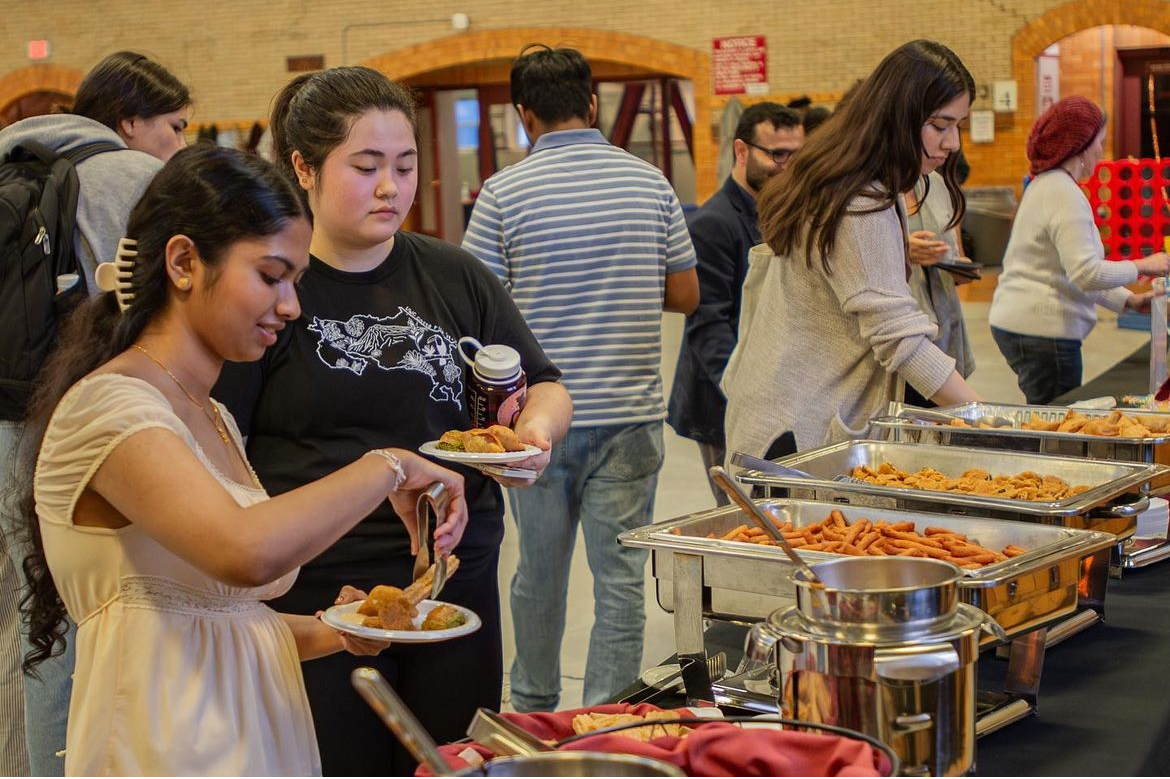Activists and scholars Dana Olwan and Laura Jaffee presented on “Palestine and the Politics of Feminist Solidarity” in the Center for Women’s, Gender and Sexuality Studies on Wednesday, March 20. Olwan, an associate professor of women’s and gender studies at Syracuse University, and Jaffee, a current labor organizer for the Service Employees International Union and previous visiting assistant professor at Colgate University, addressed numerous devastations currently facing the Palestinian people, with a focus on their ties to issues of feminism.
The presentation began by showcasing the current situation in Palestine and transitioned into an explanation of the ways in which the suffering in Palestine is a feminist issue.
“The first thing that we have to think about is how do we define our feminism? How do we understand our feminism? And if our feminism is defined through a commitment to anti-colonial and anti-racist struggles, then supporting and also having a stance against the genocide that’s happening today in Palestine seems to be a basic given,” Olwan said. “If you support anti-colonial struggles, if you are committed to anti-racist struggles, if you’re somebody who doesn’t believe that war is ever just, then you must also understand that what’s happening in Palestine is unjust.”
Olwan and Jaffee stated that the relationship between feminism and Palestine is not new.
“The reality is [that] Palestine has been a feminist issue for a very long time,” Olwan said. “Third World feminist scholars, transnational feminist scholars, black women scholars and activists have long called for recognition of the harsh realities of Israeli occupation and have also called for a feminism that actually centers Palestinian women and Palestinian women’s experiences of gender and sexual violence under Israeli settler colonialism.”
Jaffee explained the danger of feeling distant from the cause.
“I think for those without direct [connections] to what’s happening, it can be easy to feel like this is horrifying and devastating, but also maybe distant and removed from our day-to-day lives,” Jaffee said. “Freeing Palestine is everyone’s issue.”
Stephanie Skura ’23, a student in the master’s degree in teaching program at Colgate, touched on the importance of engaging in educational conversations.
“I think that a big thing I took away was that it’s easy to chalk a lot of the conversation up to being complicated and above my own understanding, but there is a lot that I do know at the same time,” Skura said. “Especially growing up in a Jewish household and being in communication with a lot of people who do know a lot about these issues — maybe it’s their work, or maybe they’re just very educated on these issues — having conversations with them is really helpful, and to hear these sorts of panels is helpful. To be able to take more of a stance is something really important to realize.”
Universities are valuable places for activism, according to Olwan, as they are places where there have been attempts to silence activist voices.
“I am located in Syracuse University, so some of my organizing work has actually happened in the university,” Olwan said. “This is not because universities are centers of worlds; they’re not. The reason the university is super important is because a lot of the attacks on our right to organize, our right to speak [and] our right to contest genocide is actually unfolding on university campuses.”
Amber Hufford ’23, another student in Colgate’s graduate teaching program, found the panel to be educating, especially as she believes sources like the media cannot always be trusted for legitimate information.
“I’m trying to remain very educated on these issues, especially because I am Jewish,” Hufford said. “I think because of that, I obviously want to educate myself a lot about what’s actually happening in Palestine, especially with the way that the media is very, very biased. Everything that I’ve heard and seen on social media has been so shifted to a perspective that’s not actually the truth at all, so this has been incredibly informative for me and has been really eye-opening to what’s actually going on and especially how much has been shielded from the media about the whole conflict.”
Jaffee and Olwan stated the importance of authentically understanding the desires of the Palestinian people.
“Like any people across the world, Palestinians want to live, so this is particularly important because stereotypic orientalist, anti-Arab, anti-Muslim discourses have told us that Palestinians are people committed to a cult of death, [but] nothing on the ground shows us that,” Olwan said. “In fact, everything we see, everything that we read [and] everything that we hear from people in Gaza who are facing bombs is […] again and again, ‘I just want to live. I want to have the right to live, just like you and just like me.’”
The panel ended by urging attendees to listen and empathize with the Palestinian people and their experiences.
“What we wanted to emphasize is that what Palestinians are asking us on the ground to do is insist on their right to live, insist on the right to tell their stories, insist on their right to be human [and] insist on their right to actually have the right to live,” Olwan said


